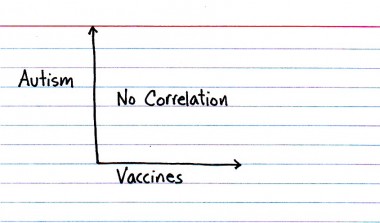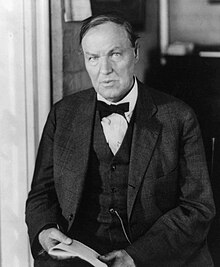R. Albert Mohler, commentator for the Christian Post,
explores the so-called "New Atheists" and explains for his readers how Darwin's theory of Natural Selection has led directly to the up-front-and-center status of famous atheists, specifically Richard Dawkins, Daniel Dennett, etc.
Atheism has appeared in some form in Western cultures since the midpoint of the last millennium. The word “atheist” did not even exist within the English language until the reign of Queen Elizabeth I.
While this is true, it's misleading. "Atheism" has been in use in Ancient Greece since at least the fifth century BCE, and the English word
atheism was derived from the French word athéisme. Mohler makes it sound that no one had ever heard of the word
atheism until the sixteenth century, but by the same token, the words theism and deism didn't enter the English language until the seventeenth century. Should we conclude that theism--the belief in God--is a relatively modern concept? That no one believed in God until the 1600s?
The word “atheist” did not even exist within the English language until the reign of Queen Elizabeth I. The earliest atheists were most often philosophical and theological skeptics who denied the existence of any personal God. Nevertheless, the God they almost always rejected is the God of the Bible – in other words, a specific rejection of Christianity.
I'm not sure of Mohler's point here, assuming that it's even true--how many other religions were prevalent in Elizabethan England? Is Mohler suggesting that atheists are merely Christian bashers?
Mohler continues by noting that early atheists failed to gain intellectual ground because they don't have a Creation Mythos:
As even the ancient Greeks understood, one of the most fundamental philosophical questions is this: Why is there something, rather than nothing? Every worldview is accountable to that question. In other words, every philosophy of life must offer some account of how we and the world around us came to be.
They
must? I'm not sure how that is enforced. At any rate, I agree that it appears to be universal to wonder about our origins. However, that some thinkers were forced to honestly conclude "I don't know" does not mean their other ideas must inherently be wrong, as Mohler implies. When a jury fails to convict a murder defendant due to the prosecution's weak case, it is not required for the jury to provide an alternative suspect.
What Mohler and many religious defenders don't understand is that atheism is a
response. It is the second-half of a two-part dialogue. When someone makes a claim and can provide no evidence for it--or bad evidence--all anyone else need do is evaluate the claim and either believe or disbelieve. It is not necessary for that person to then come up with an alternative claim that is equally satisfactory to all concerned. The claims--whether they are about the existence of ghosts, of God, or of the efficacy of homeopathy--should stand on their own, not be immune to criticism until some other claim can be safely erected in their place. Bad ideas should be purged at once, regardless if there are no other alternatives.
Next Mohler attributes the rise of atheism to Darwin's influence, and makes much of Dawkin's remarks that evolution allows atheists to be "intellectually fulfilled":
Prior to the development of the theory of evolution, there was no way for an atheist to settle on any clear argument for why the cosmos exists or why life forms appeared. Darwin changed all that. The development of Darwinian evolution offered atheism an invaluable intellectual tool – an account of beginnings.
Mohler is confused. Evolution has nothing to say about the origins of the universe, the sun, the planets, or of life on Earth. Those are all topics of other scientific disciplines, and isn't it interesting that they all independently point to the same conclusions, whereas if you ask three religious people about the nature of God you get six answers. All that Evolution by Natural Selection attempts to explain is the diversity of living species on this earth. That this explanation runs counter to Genesis is not the fault of the evolutionary scientists nor the atheists who accept their theories.
The New Atheists have emerged as potent public voices. They write best-selling books, appear on major college and university campuses, and extend their voices through institutional and cultural influence. The movement is new in the sense that it differs from the older atheism in several respects, and one of these is the use of science in general, and evolutionary theory in particular, as intellectual leverage against belief in God.
Much in the same way that modern astronomers differ from their older, medieval astronomer counterparts by using the latest scientific tools which provide more accurate results. Mohler uses the products of modern science (computers, electricity, the internet) to criticize other people for doing the same thing.
Daniel Dennett, another of the “Four Horsemen” of the New Atheism, has argued that Darwin’s theory of evolution is a “universal acid” that will burn away all claims of the existence of God.
This is a deliberate misquote. The "universal acid" comment comes from Dennett's book "Darwin's Dangerous Idea" where Dennett writes that evolution "eats through just about every traditional concept, and leaves in its wake a revolutionized world-view, with most of the old landmarks still recognizable, but transformed in fundamental ways.” For an example of this "revolutionized world-view" compare a modern-day Theistic Evolutionist such as
Michael Francis Collins** or countless other Christian believers--who believe that God's finest tool of Creation is Natural Selection--with a eighteenth-century uneducated Christian farmer. Both believe the same thing--"God created the Heavens and the Earth"--but the
latter former* also accepts that perhaps bronze-age Biblical authors didn't have quite the understanding of reality as we do today, and that therefore our expression of our "Creation Myths" could perhaps stand some tweaking.
The New Atheists would have no coherent worldview without the Dogma of Darwinism. With it, they intend to malign belief in God and to marginalize Christians and Christian arguments. Thus, we can draw a straight line from the emergence of evolutionary theory to the resurgence of atheism in our times. Never underestimate the power of a bad idea.
How curious that Mohler doesn't spend one word explaining
why evolution is a bad idea. It leads people away from simple-minded dogmatic belief in God, so it must be evil, and anyone who likes evolution must be just as evil--which would be a curious idea to the millions of Christians who have no problem accepting the major tenets of evolution, even if they disagree whose hands are at the wheel. Mohler would prefer that his readers close their minds, open their Bibles, and believe what they're told.

* Mistaken modifier.
** Wrong name.












